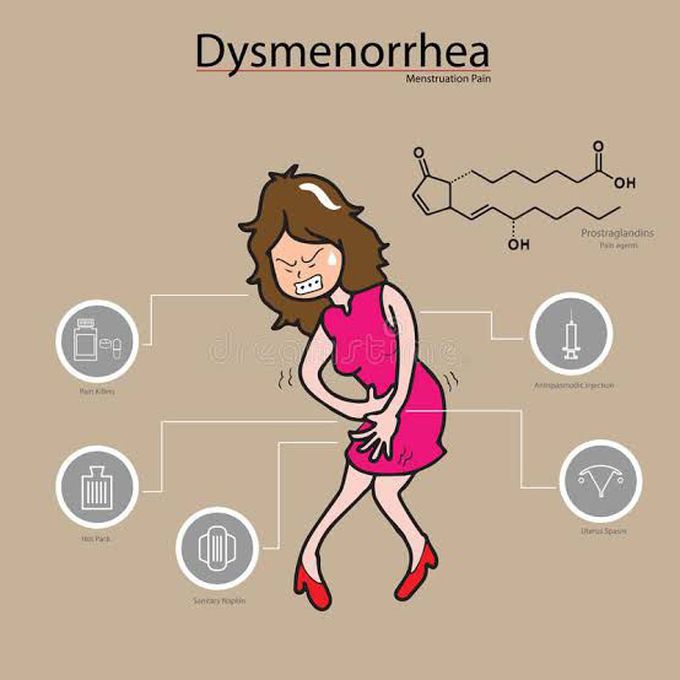

syeda irha hasanover 2 years ago

Dysmenorrhoea
Dysmenorrhea is characterized by severe and frequent menstrual cramps and pain during your period. Dysmenorrhea may be primary, existing from the beginning of periods, or secondary, due to an underlying condition
Other commentsSign in to post comments. You don't have an account? Sign up now!
Related posts
The Menstrual CycleHormonal Regulation of Menstrual CycleWhat Is a Normal Period?
A normal period (or normal menstruation) is different for every woman. Each month, one of your ovaries releases an egg. Meanwhile, your uterus gets ready to help your baby grow if that egg gets fertilized. If it does, you’re pregnant. If it doesn’t, your body sheds the lining of your uterus through your vagina. That’s your period. It happens, on average, every 28 days.
Think about how old you were when you got your first period. Now think about how old you may be when you enter menopause. Your body and life will change a lot from one to the other, right? So does your menstrual cycle.
When it comes to periods, "normal" covers a lot of ground. Use the broad range of factors below as a guide. And remember: The only true normal is what's normal for you.Normal Period Timing?
Every month, your entire body prepares to get pregnant. Your ovaries release an egg. Hormones rise and fall.
This is your menstrual cycle. It starts on the first day of your last period and ends on the first day of your next period. Though the average cycle is 28 days long, anything between 21 and 45 days is considered normal. That's a 24-day difference. For the first year or two after menstruation begins, women tend to have longer cycles that don't start at the same time every month. Older women often have shorter, more consistent cycles.
If you're on birth control pills or have an IUD, it can change the timing of your period. Ask your doctor what's normal for your form of contraception.
How long your period lasts also varies. The time from the first sign of blood to the last is usually in the 3-to-5-day range. Any length from 2 days to a week is normal for a period.Normal Period Flow?
If the egg your ovary releases every month isn't fertilized, the lining of your uterus sheds through your vagina. This is your period. The amount of blood that comes out of your body is called your menstrual flow.
Whether your flow is light, moderate, or heavy, it's all considered normal.Normal Period Symptoms:
Some months, your breasts may feel tender when you have your period. Other months, you may notice bloating around your abdomen or mood swings. Other normal menstruation symptoms include:
Acne
Cramping in the lower abdomen and back
More hunger
Sleep issues
Mood swings
Breast tenderness
Bloating
Not every period is the same, though. Most of the time, an irregular or abnormal period isn’t serious. But you should call the doctor if:
You have a heavier than usual flow
You need to change your pad or tampon hourly
Your period lasts more than 7 days
Your period suddenly stops for more than 90 days
You have severe pain
You think you might be pregnantWhat is a menstrual cycle?
The menstrual cycle is a term to describe the sequence of events that occur in your body as it prepares for the possibility of pregnancy each month. Your menstrual cycle is the time from the first day of your menstrual period until the first day of your next menstrual period. Every person’s cycle is slightly different, but the process is the same.Menstrual cramps:
Menstrual cramps (dysmenorrhea) are throbbing or cramping pains in the lower abdomen. Many women have menstrual cramps just before and during their menstrual periods.
For some women, the discomfort is merely annoying. For others, menstrual cramps can be severe enough to interfere with everyday activities for a few days every month.
Conditions such as endometriosis or uterine fibroids can cause menstrual cramps. Treating the cause is key to reducing the pain. Menstrual cramps that aren't caused by another condition tend to lessen with age and often improve after giving birth.Delayed periodsTreatment of delayed periods

